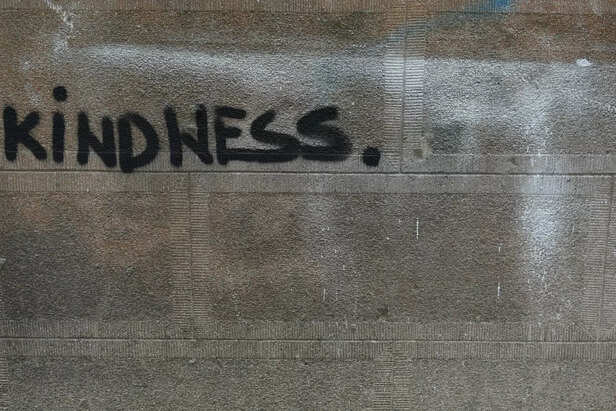The Gita Wasn’t Written to Motivate You, It Was Written to Break You
Riya Kumari | Oct 06, 2025, 05:49 IST
Gita
( Image credit : AI )
In a world obsessed with self-help slogans and instant empowerment, the Bhagavad Gita stands as a profound invitation, not to feel better, but to become better. It wasn’t penned to uplift your ego or fuel your ambition. It was written to dismantle the illusions you cling to, to shatter the false sense of control you hold over your life, and to awaken you to a deeper truth.
We live in a world addicted to comfort, where words are currency if they soothe the mind. The Bhagavad Gita does none of that. It doesn’t come to applaud your effort or inflate your ego. It comes to shatter you, slowly, quietly, and irrevocably. It comes to strip away the illusions you have built around yourself, the lies you tell yourself to sleep at night, and the delusions that make life seem tolerable. It is not a manual for motivation. It is a mirror of your suffering and a map for walking through it. And in that breaking, if you have courage enough to endure, there is liberation.

Arjuna did not need encouragement. He needed to see reality. Standing on the plains of Kurukshetra, sword in hand, his mind trembled, not because the world demanded it, but because he could not reconcile duty with attachment, righteousness with love, life with death.
This battlefield is not unique to Arjuna. It is the one each of us faces in silence: the choices we avoid, the responsibilities we postpone, the fears we hide even from ourselves. The Gita begins not with victory, but with paralysis. And in that paralysis lies the first truth: the mind must confront its own weakness before it can act with strength.

Krishna does not tell Arjuna to chase glory. He tells him to act without attachment, to see the fruits of his labor as a gift to the universe, not as a measure of his worth. This is the first fracture, a crack in the ego that whispers, “You are more than your success, more than your desires.”
The self is eternal, unaffected by worldly triumphs or disasters. The body is borrowed; the mind is a passing guest. Yet we clutch both as if they define us. The Gita’s purpose is to make us release them, gently, painfully, inevitably.

The Gita’s call is not to inactivity. It is to act with precision, purpose, and devotion, but without expectation. This is harder than it sounds. Every action is a reflection of ego, fear, and desire. To act selflessly, yet fully, demands the breaking of every false comfort you have ever known.
“Do your duty without attachment to results,” Krishna says (Bhagavad Gita 2.47). It is a rule that punishes the impatient, humbles the proud, and hums with quiet, transformative power for those willing to endure it.

Even as the Gita breaks us, it heals us. Through Bhakti, pure, unconditional devotion, our hearts find refuge. But devotion here is not sentimental; it is surrender. To surrender is not weakness, it is the ultimate act of courage. It is the acknowledgment that our ego has limits, our understanding falters, and our solitude is incomplete without the divine.
The Puranas celebrate this truth again and again: devotion purifies, devotion steadies, devotion awakens the soul buried under layers of grief, pride, and longing.

Krishna reveals his cosmic form not as spectacle, but as truth. Every being, every moment, every joy, and every sorrow is part of the eternal fabric. The revelation breaks Arjuna’s limited perspective, his personal pain suddenly belongs to the universe. It is a terrifying liberation.
We experience the same revelation whenever life strips us bare: a loss, a betrayal, an ending. In that fracture, if we are willing to see, we perceive the vast interconnectedness of all things and in that perception, our suffering begins to transform.

The Gita is not a comforter. It is a teacher of brutal honesty, a friend who shows you your wounds so that you may transcend them. Life will not pause for your fear. Duty will call. Loss will arrive. Desire will burn. And yet, by following the Gita, we learn:
The Bhagavad Gita does not tell you what you want to hear. It tells you what you need to endure. It does not comfort the ego, it dissolves it. And in that dissolution lies liberation.
If you read it with an open heart, it will not flatter you. It will break you, and in breaking, it will awaken you to a life larger, deeper, and truer than you ever imagined. Because in the end, to be broken by the Gita is not defeat. It is the beginning of awakening.
The Battlefield Is Always Within

Think
( Image credit : Unsplash )
Arjuna did not need encouragement. He needed to see reality. Standing on the plains of Kurukshetra, sword in hand, his mind trembled, not because the world demanded it, but because he could not reconcile duty with attachment, righteousness with love, life with death.
This battlefield is not unique to Arjuna. It is the one each of us faces in silence: the choices we avoid, the responsibilities we postpone, the fears we hide even from ourselves. The Gita begins not with victory, but with paralysis. And in that paralysis lies the first truth: the mind must confront its own weakness before it can act with strength.
Detachment: The First Fracture of the Ego

Free
( Image credit : Unsplash )
Krishna does not tell Arjuna to chase glory. He tells him to act without attachment, to see the fruits of his labor as a gift to the universe, not as a measure of his worth. This is the first fracture, a crack in the ego that whispers, “You are more than your success, more than your desires.”
The self is eternal, unaffected by worldly triumphs or disasters. The body is borrowed; the mind is a passing guest. Yet we clutch both as if they define us. The Gita’s purpose is to make us release them, gently, painfully, inevitably.
Karma Yoga: Action Without Expectation

Kind
( Image credit : Unsplash )
The Gita’s call is not to inactivity. It is to act with precision, purpose, and devotion, but without expectation. This is harder than it sounds. Every action is a reflection of ego, fear, and desire. To act selflessly, yet fully, demands the breaking of every false comfort you have ever known.
“Do your duty without attachment to results,” Krishna says (Bhagavad Gita 2.47). It is a rule that punishes the impatient, humbles the proud, and hums with quiet, transformative power for those willing to endure it.
Devotion: The Softening of the Broken Soul

Pray
( Image credit : Unsplash )
Even as the Gita breaks us, it heals us. Through Bhakti, pure, unconditional devotion, our hearts find refuge. But devotion here is not sentimental; it is surrender. To surrender is not weakness, it is the ultimate act of courage. It is the acknowledgment that our ego has limits, our understanding falters, and our solitude is incomplete without the divine.
The Puranas celebrate this truth again and again: devotion purifies, devotion steadies, devotion awakens the soul buried under layers of grief, pride, and longing.
The Universal Vision: A Shattering Revelation

Joy
( Image credit : Unsplash )
Krishna reveals his cosmic form not as spectacle, but as truth. Every being, every moment, every joy, and every sorrow is part of the eternal fabric. The revelation breaks Arjuna’s limited perspective, his personal pain suddenly belongs to the universe. It is a terrifying liberation.
We experience the same revelation whenever life strips us bare: a loss, a betrayal, an ending. In that fracture, if we are willing to see, we perceive the vast interconnectedness of all things and in that perception, our suffering begins to transform.
Living the Gita: Broken, Yet Awake

Live
( Image credit : Unsplash )
The Gita is not a comforter. It is a teacher of brutal honesty, a friend who shows you your wounds so that you may transcend them. Life will not pause for your fear. Duty will call. Loss will arrive. Desire will burn. And yet, by following the Gita, we learn:
- To act fully without clinging to outcomes.
- To love and surrender without losing ourselves.
- To see beyond the temporary and touch the eternal.
The Break That Frees
If you read it with an open heart, it will not flatter you. It will break you, and in breaking, it will awaken you to a life larger, deeper, and truer than you ever imagined. Because in the end, to be broken by the Gita is not defeat. It is the beginning of awakening.
